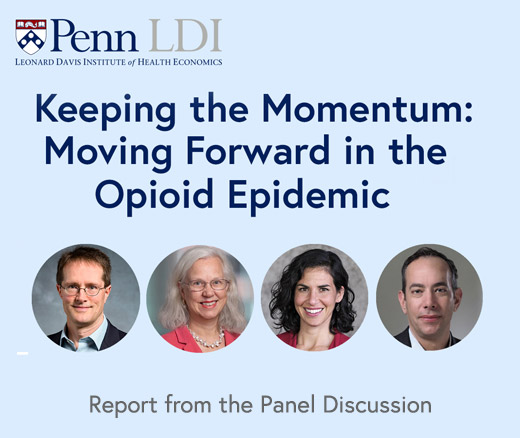
Paying for Healthy Choices
Evidence From More Than 600 Studies Reveals When Financial Incentives Move the Needle—And When They Don’t
In Their Own Words

This op-ed was posted on PennLive on July 17, 2025.
The last time lines at Pennsylvania’s food banks were this long was in the summer of 2023.
Inflation was rising, and states had just cut pandemic-related increases to the nation’s main food program. We are poised to relive that devastating combination of high inflation and cuts to government benefits, as Congress plans to make over $180 billion in cuts to the Supplemental Nutrition Assistance Program (SNAP) due to the recently passed One Big Beautiful Bill Act. More than one million families in Pennsylvania are expected to lose some or all of their SNAP benefits. Many more adults and children could go hungry, depending on state officials’ ability to fund the food cuts or pass them on.
All this pain is over SNAP benefits that average $6.20 per person per day. Contrast that to the after-tax bump of $389,000 that the bill is going to send to the top 0.1% of income earners, according to the Penn Wharton budget model. To make these reductions – the largest in SNAP’s history – Congressional Republicans’ made three devastating changes: (1) slashing federal funding for SNAP, forcing states to choose between making major budget cuts or kicking families off the program, (2) imposing burdensome work requirements, including on families with children, and (3) limiting future SNAP adjustments that now let benefits rise with rising food costs and changing nutrition recommendations.
As doctors and researchers, we know that one in five American families and one in three families in Philadelphia struggles to afford the food they need to keep their children healthy. The problem is worsened by ongoing increases in food prices, which rose 3% in the past year and have been climbing faster than economy-wide inflation. SNAP helps families across the country, including more than 2 million Pennsylvanians, afford the food they need.
Read the full op-ed here.



Evidence From More Than 600 Studies Reveals When Financial Incentives Move the Needle—And When They Don’t

Penn LDI Panel Urges Family-Focused Strategy and Stronger Health System Response

Remote Nurses Improved Quality Slightly but Can’t Replace Nurses at the Bedside, a New Study Finds

Washington State’s First-in-the-Nation Insurance Plan Begins Payouts in Mid-2026, and Researchers Will Weigh its Effect on Care, Costs, and the Long-Term Care Markets

Without Pressure From Congress, NHANES — Which Helped Uncover High Levels of Childhood Lead, Nutritional Deficiencies, and Forever Chemicals — Will Cease to Exist

A Multi-State Study Finds That Parents Often Travel 60+ Miles—With Distance, Insurance, and Race Driving Gaps in Maternal Care